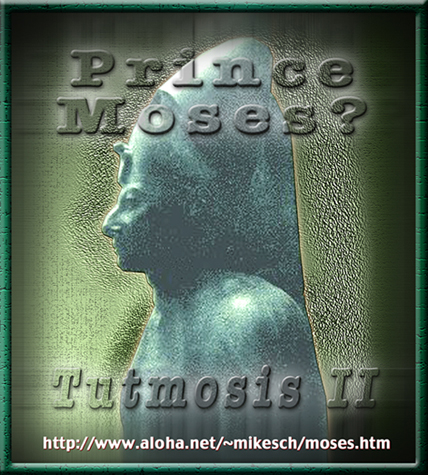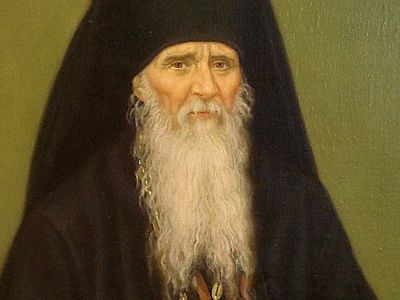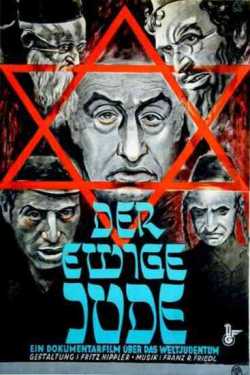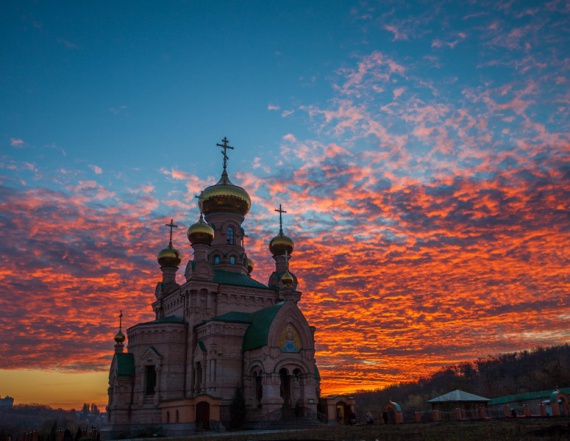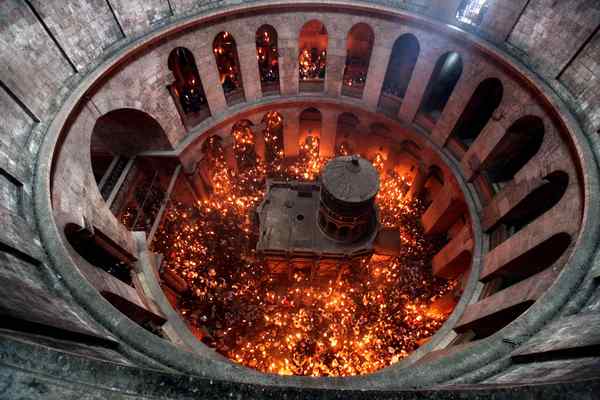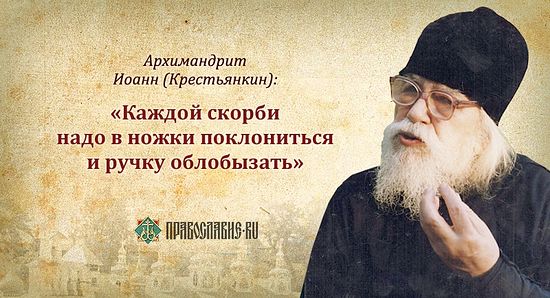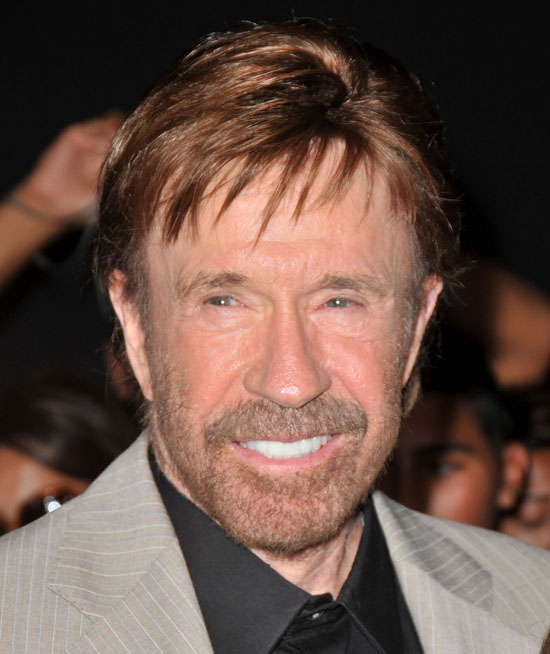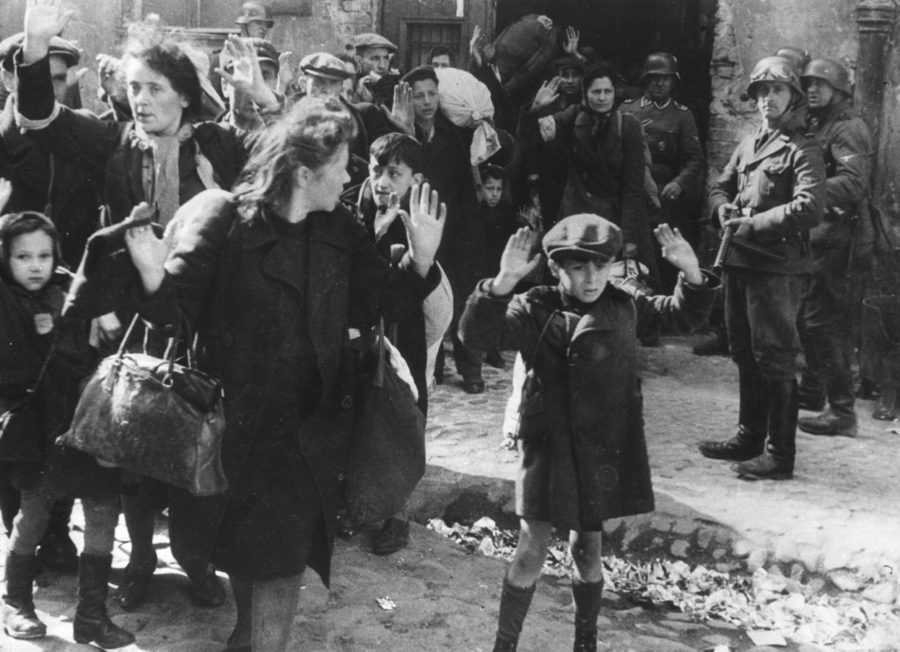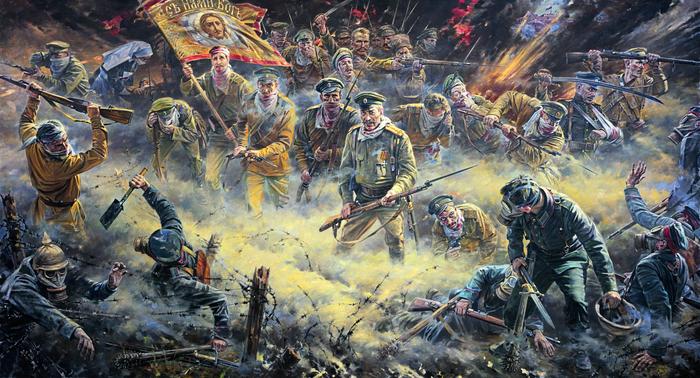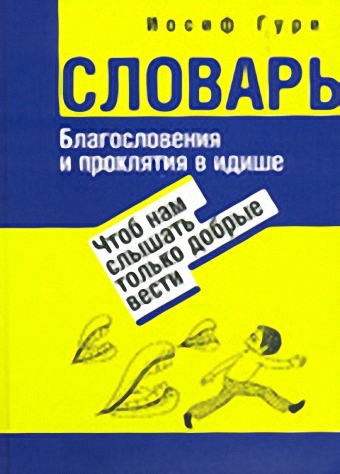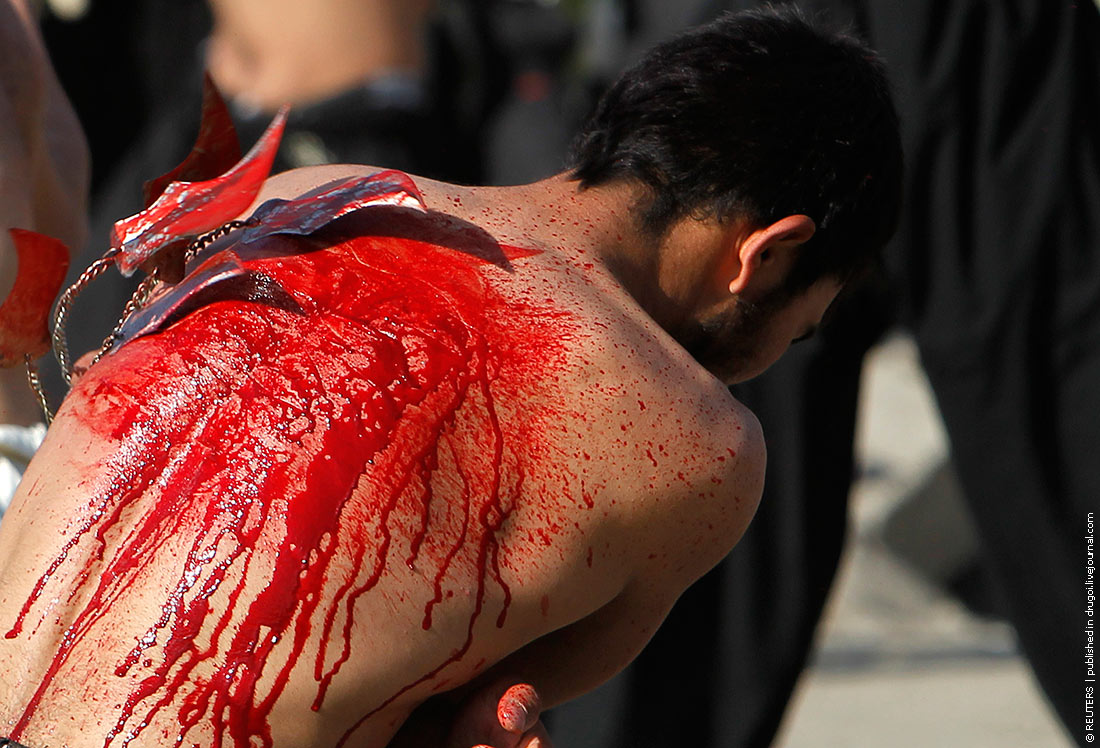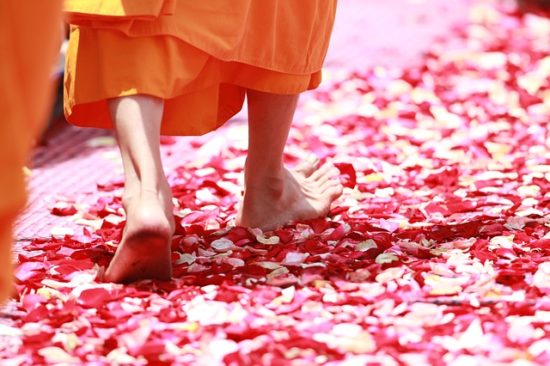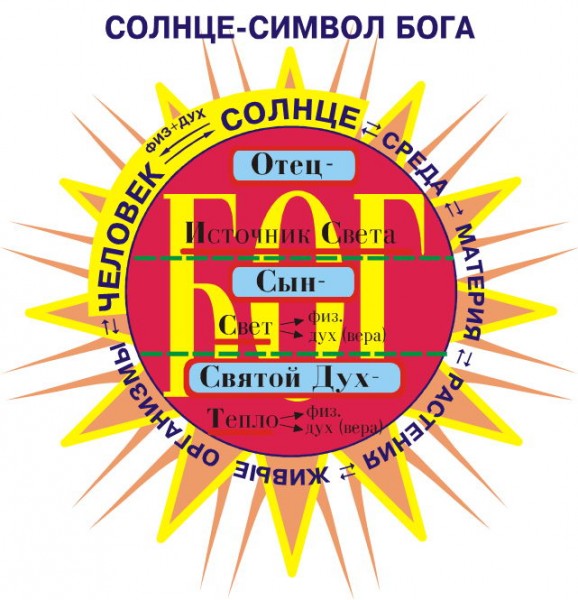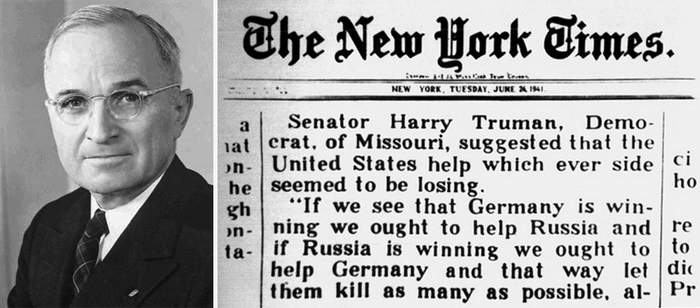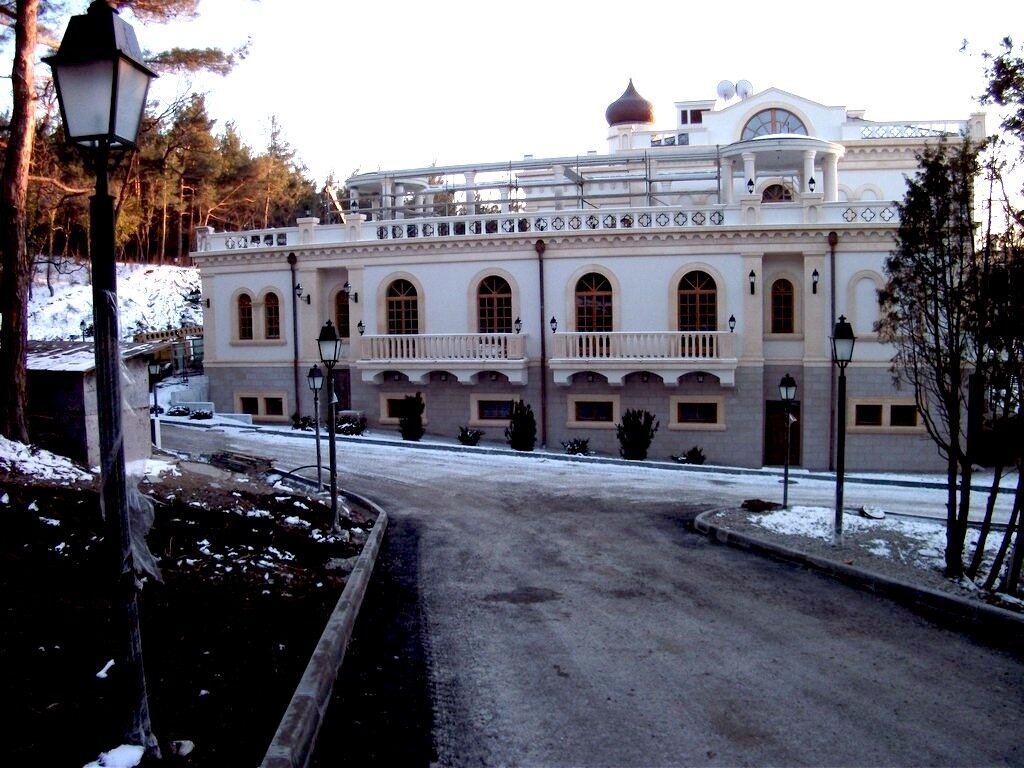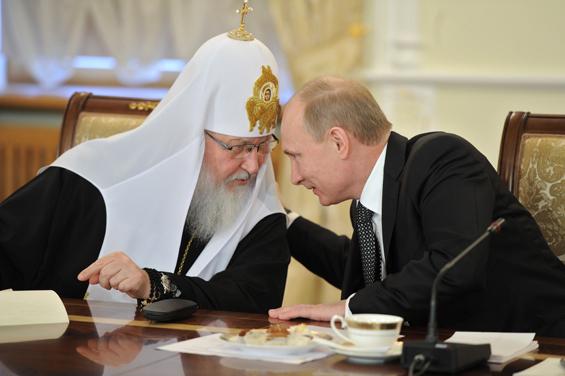Temple of the Life-Giving Trinity on the Sparrow Hills. Category Archives: Elder John (Krestyankin) Elder John
And reasoning with advice
Temptations of time, TIN, new documents
- 70 years of captivity could not but leave an imprint on people. The captivity passed, but a new misfortune on the threshold - freedom and permissiveness to all evil
- Experience shows that those who have come to the Throne from rock music cannot serve for salvation ... Some people cannot stand at the throne at all, and some sink to the bottom of hell with iniquities that they didn’t do before the dignity
- Some people publish religious literature on a computer, while others create disgrace. And, using the same technique, some are saved, while others die already here on earth
- The appeal to bioenergy is the appeal to the enemy of God
- You cannot simultaneously take in the Blood and Body of the Lord and urine. There is no blessing from the Church for urine treatment
- Take cards: you have not yet been asked about your faith and are not forced to deny God
- The seal will appear when he reigns and receives power, and there will be one single ruler on earth, and now each state has its own head. And therefore, do not panic prematurely, but now fear the sins that open and make peace for the future Antichrist
Sorrows, diseases, old age

- The time has come that only sorrows can a person be saved. So, everyone needs to bow to the legs and kiss the handle
- One must seek not joy, but that which contributes to the salvation of the soul
- They don’t leave the Cross given by God - they’re removed from it.
- That grieve is good, because it is a kind of prayer. Only do not grumble
- In conclusion, I had a true prayer - and this is because every day was on the verge of destruction
- The last believers will be in the eyes of God more than the first, more than accomplished the deeds unthinkable for our time
- Sickness - God's remission - contributes to the good of man. They slow down our crazy run through life and make us think and seek help. As a rule, human help is powerless, depleted very quickly, and a person turns to God
- It is necessary to fulfill the prescriptions of age, they are given to us from above, and the one who opposes them resists God’s determination about us
- Collaborate, confess and partake - and with God give yourself to the doctors. Doctors and medicines are from God, and they are given to help us.
God, His Providence and Salvation

- Only the Providence of God rules the world. This is the salvation of the believer and this is the strength to bear the earthly tribulations
- God does not consult with anyone and gives no report to anyone. One thing is certain: all that He does is good for us, one good, one love
- Without everything, it’s scary and life itself is not in life
- Life is especially difficult now, but do you know why? Yes, because they completely departed from the Source of life - from God
- Important not what to do but as and in the name Who. This is salvation
- There are no obstacles for those who want to be saved at all times, because the Savior Himself leads the way of salvation
Family, parenting, abortion, work and school

- If your feelings include an apostolic definition of love (1 Cor. 13), then you will not be far from happiness
- By the command of God, the first and most important blessing for creation, you must both receive from your parents. They are given sacramental knowledge about children, bordering on providence.
- Church canons you need to know: a possible age difference of plus or minus 5 years, more unacceptable
- For each - by the will of the mother of the unborn - baby, those others whom she will give birth “to the joy” of herself, will reward her with sorrows, illnesses, a tight mental
- If the family council votes are divided, then you should take the spouse's voice to the head
- Work should be treated as obedience, and in a professional sense, always be at the proper level, and not below average
- Learning in order to kill time is a sin. Time must be treasured
Monasticism

- One should not go to the monastery because the family was destroyed, but because the heart burns with the desire to be saved in a difficult way and to serve God completely
- The Lord is praised for both saving and honest marriage. And each person chooses for himself. But that and that and another - a cross bearing, it is unconditional
- It is appropriate for a monk to fight temptations on the spot: in the new place, the same demon will take on you with a vengeance by right, for he once defeated you once, expelling him from the place of battle
Seniors, clergy, priesthood

- Those old men that you are looking for today are gone. Because there are no novices, but only one interrogators
- retreats when they do not accept God the first time, and then falls silent
- Thinking for you in everything and leading you like a blind hand, I see no reason and benefit: you will become relaxed
- Go to church, confess, ask many questions about your concerns. And only when you realize that out of many, one is the closest to your soul, will you turn only to him
- Church minister needs helper companion, not hindrance
- It is not appropriate for a priest to act - this is a serious sin for him
- His Holiness Patriarch Alexy I (he ordained Father John - approx. Ed.) Said: “Do everything that is written in the Trebnik, and endure everything that it finds.” And you will be saved ”
Orthodox Church, preaching Orthodoxy

- If it was planted with a fist, then it would not have been on the earth for a long time
- It is not necessary for others to talk about God, when they still do not have a tendency to hear about Him. You will provoke them to blasphemy
- Faith will come to your spouse in response to your labors and wise behavior with him in everything
- We will not flatter ourselves with the idea that we can be fairer than the Lord, but we will obey His commands given to us by the Holy Apostles and the Holy Fathers, and this obedience will be both saving and close to us
- Be afraid to fall away from the Mother Church: only she alone is holding back the lava of anti-Christian revelry in the world now!
Archimandrite John (Krestyankin): guardian of faith
About Fr. So much has been said to John (Krestyankin) as there is little about any of the saints who shone in the land of Russia. But he has not yet been counted among the saints - too little time has passed since his death. But few who personally knew Father John doubted that this man was one of those about whom Christ said - "you are not of this world." On the birthday of Father John, the “All-Russian Elder”, as many called him in absentia (he categorically protested against such names), “Neskuchny Sad” recalls what this man was and why the legacy left by him touches us so much.
.jpg)
Archimandrite Ioann (Krestyankin) died only seven years ago, and back in the mid-1990s, already at a very advanced age, willingly received visitors who came to him from all over Russia to the Pskov-Pechersky Assumption Monastery. Such proximity in time makes it especially close, understandable, modern for us. In the last years of his life, he willingly shared his memories, so that the priest is not known as an example more than the thousands of holy martyrs and confessors who ended their days in places where Father John was destined to return to. In addition, hundreds of soulful memories remained about him. People who happened to see Father John recall how inspired he served in the temple. As he walked out of the temple, surrounded by people, old and young, who often came to just see him, he walked swiftly, almost flew, managing to answer questions and giving away gifts destined for him himself. How he seated spiritual children on an old sofa in his cell and resolved doubts in a matter of minutes, consoled, exhorted, gifted with icons and spiritual brochures (in the 1980s there was a big flaw), generously watered holy water and anointed “buttercup”. With what spiritual ascension people then returned home. Father John answered letters to the bag with which he invariably stood in the corner of his cell until his death (in recent months he dictated answers to cell-mate Tatyana Smirnova), and even his last Christmas in his life he received many spiritual children, having received a familiar postcard from his father with personal congratulations. How many such cards did he send each year - hundreds? thousands?
Father John (Krestyankin) was called the “All-Russian elder” - and in fact, the will of God was revealed to him about people, for which there are many dozens of testimonies. And he was a confessor, who underwent a prison, torture, camp under the Soviet regime, was several times dying. And also - the author of inspired sermons, now sold in millions of copies. He also left some wonderful books, including The Experience of Building a Confession, with which many people of the 1970s generation. started the path to faith.
Finally, Father John was a unique prayer book, commemorating in his prayer all the people at least once met in his life.
Palm of St. Tikhon
“Until the age of 14, I have not met a single unbeliever,” confessed Father John. He was born on March 29 (April 11 in a new style) 1910 in the family of the Oryol bourgeoisie Mikhail Dmitrievich and Elizaveta Ilarionovna Krestyankins and was the eighth child. The boy received the name in honor of St. John the Hermit, on the day of whose memory he was born. On the same day, the Church celebrates the memory of the reverend fathers of the Pskov-Pechersk Mark and Jonah, so it is difficult to consider it a coincidence that the last 38 years of his life, Father John lived in the Pskov-Pechersk monastery and at that time received all-Russian fame.
Vani’s father died when the boy was two years old, and his mother raised him mainly, who was helped by relatives, including Vanin’s uncle, merchant Ivan Aleksandrovich Moskvitin. Until 1917, Vanya lived in Orel without a break and retained many touching memories of his childhood. For example, about how mother Elizaveta Ilarionovna shared between her youngest children - Tanechka and Vanechka - the last testicle intended for herself, referring to her "headache". One of the important people for little Vanya was the local priest, Father Nikolai (Azbukin), who baptized him as a baby. Once, while visiting, little Vanya was embarrassed by the absence of lean food on the table - it was a Friday afternoon. He did not eat, affecting his poor health, but very soon the cause of "ill health" was revealed. He had a chance to go home with his father Nikolai, who, unlike the boy, didn’t refuse the food offered to the guests and softly explained to Vanya that the owners ’mistake was involuntary, therefore she should have been covered with love and not paid attention to her.
Already at the age of six, Vanya began to serve in the church - shortly after the local undertaker and part-time assistant church leader sewed for the boy an element of gold brocade that was going to finish the coffins. Vanya was appointed a sexton, and his mother helped him clean the lamps and church utensils.
At the age of 12, in 1922, Vanya for the first time expressed a desire to become a monk. This happened during the departure of the bishop of Yelets, the future confessor of Nicholas (Nikolsky) to a new place of service: saying goodbye to the Oryol flock, he asked among others and Subdeacon John Krestyankin what to bless him with. He asked for blessings for monasticism, which he received after 44 years.
And the next year, having arrived in Moscow and being in the Donskoy Monastery, Vanya received one more blessing, which he subsequently remembered his whole life from His Holiness Patriarch Tikhon, who spent the last years of his life under arrest. In 1990, when Father John lived in the Pskov-Pechersky monastery, Patriarch Tikhon appeared to him and warned of the impending division of the Russian Church (which soon happened in Ukraine). At the end of his life, after the glorification of St. Tikhon in 1998, Father John said that he still felt his palm on his head.
Oryol - Moscow - Black River
In 1929, Ivan Krestyankin graduated from high school and entered accounting courses. He worked as an accountant until 1944, but his heart always belonged to the Church. It was for this reason that in 1932 he had to leave Orel for Moscow: he was fired from his first job in Orel for not wanting to take part in regular Sunday ав ruths ’, and it was difficult to find a place for those who were laid off in those days. The first weeks, not wanting to upset his mother, Ivan regularly got up in the morning and “went to work”, and at the end of the month he even brought home a “salary” - the money earned from selling the violin. But a new job was not sought, and now, with the blessing of the famous Oryol old woman - mother Vera (Loginova), the young man leaves for the capital.
To the front in 1941, Ivan Mikhailovich was not called up for low vision - he had severe myopia. But the difficulties of wartime did not pass him. Future father John had to hide his cousin Vadim, who was behind the evacuation convoy, at home for several days - they could be recognized as a deserter and executed by the laws of the war. During the day, Vadim hid in a chest where holes were drilled for air to enter, and at night, together with his cousin, he prayed to St. Nicholas the Wonderworker. In the end, Ivan went to the commandant’s office with a statement about the contusion of Vadim. The case was resolved favorably: Vadim was sent to the hospital, and they were also given coupons for military rations - this temporarily saved Ivan from the hungry existence that he led in the early years of the war.
In July 1944, Ivan Mikhailovich became a psalmist in the Church of the Nativity of Christ in Izmailovo. He had seen this very temple shortly before in a dream: the Monk Ambrose of Optina introduced him inside and asked the monk accompanying them to bring two vestments to serve. Six months later, Metropolitan Nikolai (Yarushevich) ordained John Krestyankin to be deacon, and nine months later he became a priest - one of the first ordained by the new Patriarch Alexy I.
The first post-war years were a time of a short revival of the Russian Orthodox Church: persecution was weakened for a short time, and people reached out to temples. This time made special demands on priests: it was necessary to show special sensitivity and compassion, to help people in everyday circumstances, and Father John, who remained to serve in the Izmailovsky church, gave himself to people without a trace. Until late in the evening he went to trebs, confessed, baptized, married, and improved the temple. There were days when the only free time that he could make for rest was half an hour before the evening service, which he spent at the altar.
The abbot of the church did not encourage the impulses of the young priest - they could attract extra attention from the commissioners, who continued to vigilantly monitor the Church. The temple could be closed at any time, and not to the extent of zealous ministers, to be exiled to the construction sites of socialism. Much later, Father John told how once, doubting the appropriateness of his then zeal, he shared his thoughts with Patriarch Alexy (Simansky).
Dear Father! What did I give you when I ordained? the Patriarch asked him in response.
- The servant.
- So. All that is written there, do it, and endure everything that it finds then.
Already at the beginning of his ministry, in the late 1940s, Father John started the custom of preaching sermons. He did not part with this rule until the end of his ministry, and during the liturgy, as a rule, he read sermons from notebooks. But these texts were never something abstract theoretical. Already in his mature years, the father recalled how once in his youth, fascinated by writing a sermon on love, he locked himself in a room, and, not wanting to be distracted, several times ignored a knock on the door. Then, going out into the corridor, he saw a neighbor who apologized and explained that she wanted to borrow money for bread. The reproaches of conscience were such that the priest did not even give that sermon from the pulpit.
In 1950, Father John graduated from the Moscow Theological Academy in the Trinity-Sergius Lavra and wrote a dissertation on the Monk Seraphim of Sarov. She did not have to be protected. On the night of April 29-30, investigators rushed into his apartment, and Father John himself was taken to the Lubyanka.

Priest John Krestyankin, photo from the 1950 case .
The next five years, Father John spent in prisons and camps, and returned with broken fingers on his left hand and in a pre-infarction state. “The Lord transferred me to another obedience,” he said of his conclusion. But it was precisely this time spent first in solitary confinement on the Lubyanka, then in the Lefortovo prison (both there and there he was interrogated and tortured a lot), then in the cold barracks of the high security camp at Chernaya Rechka junction (Arkhangelsk Territory) and, finally, in he called the invalid camp settlement near Samara perhaps the happiest in his life. “God is close there,” Father John explained. And yet - "there was a real prayer, now I don’t have such a prayer."
“The main thing is pray”
Father John was arrested on a denunciation written by the rector, regent and protodeacon of the temple where he served. Archimandrite Tikhon (Shevkunov), who had the opportunity to communicate with Father John at the Pskov-Pechersky Monastery for many years, tells in his book “Unholy Saints” that the father even agreed with some of the charges brought against him. For example, he did not deny that young people were gathering around him, whom he, as a shepherd, did not consider himself entitled to drive out, and that he did not bless them to join the Komsomol, because this is an atheist organization. He denied only his alleged participation in anti-Soviet agitation: “activities of this kind” as a priest did not interest him at all.
Five years later, when Father John will be released (he was sentenced to seven years, but under an amnesty he was released two years earlier), the head of the camp will ask him:
Father, do you understand what you were sitting for?
- No, I did not understand.
- It is necessary, father, to follow the people. And not the people to lead.
But even in the camp, where there were many criminals, people themselves were drawn to Father John. Once he was ordered to give their prisoners their earnings - a few coins, but on the eve of their distribution someone stole a money bag. Father John prepared for the worst and only mentally cried out to God: "to bring this cup past me, but not what I want, but what you are." The next day, a suitcase with the contents was found: it was seized from criminals and returned to the priest their main "authority", whose word was the law for the rest.
Another prisoner, Archpriest Veniamin Sirotinsky, recounted how one day a daughter was terminally ill with the head of the camp. “In desperation, the boss sent for us, we asked everyone to go out, christened the child with an abbreviated rank, gave them to drink the blessed water, prayed, and - a miracle! “The next day the child was healthy.”
Several times, Father John himself was on the verge of death: he was nearly killed by overwork in the sawmill, which was subsequently replaced by "roasting" the clothes of those convicted of insects in a hotly heated barracks. However, he did not condemn anyone, or even those who reported on him. Even during interrogations in Moscow, the investigator called the head priest of the church, where Father John served, in a confrontation with a person under investigation. Seeing the scammer, the father was so glad that he rushed to hug him, but he collapsed to the floor, losing consciousness from excitement. Later, already in the camp, Father John found out that the parishioners were boycotting the priest-informer, and once he handed over a note for them with another released to freedom. The note contained God's blessing and a request "to forgive the informant priest, as he, Father John, also forgave and attend the services he performs."
All his life the father remembered the investigator, who, like himself, was called Ivan Mikhailovich. “He was a good man, a good one, but is he alive?” His cellwoman later retold the words of his father. He thought and answered himself: "Alive, alive, but very old."
Father John was released for the Presentation of the Lord on February 15, 1955, but his eyes were still on, so the risk of returning to prison never really disappeared. Once it almost happened. In the spring of 1956, when the priest had served in the Pskov Trinity Cathedral for almost a year, he was disliked by the local authorities and the commissioner, for his long sermons and for the improvement of the cathedral, says Archpriest Oleg Teor. Once Father John was warned: "One night, pack up and leave, otherwise you will get to where you were already." The father obeyed, and, as it soon became clear, not in vain: he was already preparing to arrest him, attributing the theft of state property.
After many decades, a nephew came to the inhabitant of the Pskov-Pechersky monastery hieromonk Rafail, hiding from the police, who were looking for him on false suspicion. The teenager was brought to father John, and he confirmed: he is innocent of the crime attributed to the boy, but he still has to sit in prison. After a half-hour confession, the guy reconciled himself to this thought, but nevertheless asked the priest: "how to behave in prison?" And he heard: “Everything is simple - do not believe, do not be afraid, do not ask. And most importantly, pray ”(see“ The Unholy Saints ”by Archimandrite Tikhon).
This particular prayer, which Father John performed in conditions of mortal danger, did not go unanswered. Having already been released and returned to the ministry (he now served in rural parishes, mainly in the Ryazan region), Father John began to involuntarily draw the attention of the parishioners with obvious spiritual gifts - an amazing gift of reasoning and insight. There is evidence of Simeon (Zhelnin), now glorified in the face of saints, who had worked in the Pskov-Pechersky monastery before Father John became the inhabitant of the same monastery. Once, when the cellwoman of the Monk Elder Simeon began to ask for help in “holy places” and at the same time visit Father John, he revived and answered: “Take a trip to him. He is an earthly angel and a heavenly man. "
Six parishes
Under Khrushchev, persecution of the Church resumed with renewed vigor. The new leader of the country promised to show “the last priest” on television, churches began to be closed everywhere, either by hanging locks on doors or turning them into warehouses (the Pskov-Pechersky monastery was almost the only one in Russia that avoided closing in the Soviet period). Mass arrests of clergymen resumed. For father John Krestyankin, it was a time of wandering around the parishes. Everywhere he appeared, a sermon sounded, churches were restored - often contrary to official prohibitions. Together with the parishioners he plastered the walls, changed the roof, the priest himself painted the floors.
The hierarchy was forced to “take measures”: in 11 years, the priest replaced six parishes.
In those years, his spiritual kinship with one of the most revered saints, Seraphim of Sarov, manifested itself. The Lord gave Father John almost the same test that the Monk Seraphim had endured 150 years earlier. On the night of January 1, 1961 (then John served in the church of Cosmas and Damian in the village of Letovo, Ryazan Region), hooligans broke into the priestly house, beat the priest, tied him up, gagged him and threw him on the floor with a gag. So he lay until the morning when the neighbors found him half-dead, and after a few hours, Father John already served the liturgy, praying among others about “those who do not know what they are doing.” Rev. Seraphim, who was beaten by robbers who looked for money in his cell, asked not to punish them when they were exposed.
Despite the hardships and everyday difficulties, it was rarely possible to meet in those years such an open and friendly priest, like Father John Krestyankin. Restorer Saveliy Yamshchikov, who participated in an expedition to the Ryazan region in his youth, went to temples and registered unique icons. “Often we met either indifferent priests, or very suspicious priests,” he recalled. The priest of the temple in the village of Nekrasovka turned out to be completely different: he went out to meet strangers “with an amazing easy walk - as if he didn’t walk, but soared in the air - with a benevolent smile,” and “his eyes sparkled with love, as if strangers had not come to him people, but his close relatives. "
Similarly, dozens of people who will go to him at the Pskov-Pechersky monastery will later describe Father John, already 70 and 80 years old. One of them, Alexander Bogatyrev, says that the priest received him, who arrived for the first time as an old friend, "held his hand and gently looked through the thick glasses of glasses." “I could not take my eyes off his gaze,” he writes. “It was not glasses, but a fantastic microscope through which he saw my soiled soul.” Another example is given by Tatyana Goricheva, talking about a friend who first arrived in Pechory: “Nikolay hesitantly stood at the very end of a long line, but the elder immediately noticed him, walked over by himself, hugged him (he saw him for the first time), kissed him on the forehead, on the cheeks, in the back of the head - only a mother can so caress her suffering child. The elder asked where Nikolay came from when he could come to confession with him. ”
"The elders are gone now"
Father John’s childhood dream came true in 1966 - he was tonsured a monk. A year later, Patriarch Alexy I blessed Hieromonk John (Krestyankin) to serve in the Pskov-Pechersky Monastery.
This period of the father’s life is especially well known. At this time, he writes “The Experience of Building a Confession”, examining in detail each commandment and showing how to learn to see “your sins like the sand of the sea”. It turns out that even the commandment “Do not kill”, which people usually do not consider themselves to be violators, is violated by us all the time: “Everyone has experienced how he kills an evil, cruel, stinging word. How, then, can we ourselves inflict cruel wounds on people with this verbal instrument ?! Lord, forgive us sinners! We all killed our neighbor with a word. ”

It was during this period, spanning almost 40 years, that Father John (elevated to the rank of archimandrite in 1973) became the “All-Russian elder” to whom people and letters flock from all over the country and even from abroad. The father himself, however, resolutely opposed such a name: “There are no old men now. Everybody died.<…> Do not confuse the old man and the old man.<…>We need to learn that we are all essentially unnecessary and that nobody but God needs them. ” Perhaps the father himself did not always realize that behind many of his words and answers there was something more than just experience and human wisdom. Archimandrite Tikhon (Shevkunov) calls Father John “one of the very few people on earth who are pushing the boundaries of space and time, and the Lord allows them to see the past and future as the present”: “We were surprised and not without fear from our own experience that before this old man, whom the detractors mockingly called “Dr. Aibolit,” human souls are open with all their secret secrets, with their most cherished aspirations, with carefully concealed, secret deeds and thoughts. In ancient times, such people were called prophets. "
One of the vivid examples cited by Father Tikhon is the story of the creation of the Pskov-Pechersk Metochion in the Sretensky Monastery, which began with the fact that Father John, not listening to any objections, sent him - the future Archimandrite Tikhon - to Patriarch Alexy II to ask for a blessing for the creation of the Metochion in Moscow. Shortly before that, the Patriarch had strictly forbidden to make such requests to him, but when Father Tikhon followed the “will of God” (that is how Father John himself explained his assignment), no obstacles arose.
Usually, Father John did not insist on the unconditional fulfillment of his advice and did not so much advise as he gently and accurately directed the man himself to the right course of reasoning. But if he nevertheless insisted on something, and the spiritual child did it his own way, he was very lamented - self-will more than once led to tragedies. So, for example, Valentina Pavlovna Konovalova, director of a large grocery base in Moscow, who suddenly decided to remove cataracts in the eye, during a surgery, suffered a stroke and complete paralysis, suddenly died.
In people's memoirs, Father John most often appears as a meek, affectionate and very loving person. “Child of God,” he called so many of his visitors. “I thought: if a person can love a person like that and be so happy about every sinner, then how the Lord loves us!” Writes Father Superior Nikolai (Paramonov) about the priest. But in sermons and letters, Father John very often shows qualities that complement his kindness and caringness - rigor (sometimes even severity), loyalty to the canons, and implacability to sin. In a sermon for a week on the Last Judgment, he demands “pure attention” from the parishioners and talks in detail about the hellish torments that Nikolay Motovilov, a student of the Monk Seraphim of Sarov, suffered from for many years, who decided to fight demons alone. And here is a typical excerpt from one letter written by the priest: “It’s just wild for me to hear and read what you write about. At least you first got acquainted with the Orthodox Catechism, you would have better considered and known yourself, and you are sure that you would have come to the only correct conclusion - you must learn to live a Christian life yourself. ” The letters reveal the very essence of Father John, calling for "to stand for faith until death."
In the monastery years, Father John, always with great respect for the clergy, more than once had the opportunity to reconcile: it happened that the governors of the monastery forbade him to receive visitors, they could also say a caustic word. And at sunset, Father John had to go through a misunderstanding on the part of many former admirers, even to the point of accusation of betrayal - after he distributed the famous message about the TIN, which many were afraid to take for accepting the seal of the Antichrist. Father John urged us not to be afraid of numbers or cards, but to trust God completely: “Does the Lord know how to save His children from a year of fierce, if only our hearts are faithful to Him”. He developed the same idea in private letters: “The seal will follow only the personal renunciation of man from God, and not deception. Deception does not make sense. The Lord needs our heart to love Him. ”
“To accept or not to accept an individual number - at one time it seemed that there is no more important problem in the Orthodox community,” recalls Archimandrite Zacchaeus (Wood), who came to Father John from the USA several times and considered him “indisputable spiritual authority.” "The elder said a weighty word to the question. Of course, it is grace from the Lord to know everything that relates to the life of ordinary people living outside the temple enclosure." The fact that Archimandrite John, since the beginning of the 1990s. practically did not leave the walls of the monastery, was aware of everything that was happening outside, truly amazing, writes Father Zacchaeus. However, this may seem more understandable if we recall the flow of people and letters that passed annually through the cell of Father John.
Sacrament of death
Father John departed to the Lord on February 5, 2006, on the memorial day of the Council of New Martyrs and Confessors of Russia - he considered this holiday to be one of the most significant for modern Russia. “The ongoing persecution in which the Ecumenical Church was born seemed to have bypassed Russia,” the priest said in a famous sermon dedicated to this holiday shortly after its establishment, in 1994, “Russia accepted Christianity as ready, suffered by others, from the hands of its Great Equal-to-the-Apostles Prince - ruler Vladimir and grew into it very small victims. But could the Russian Church have passed the path common to all Christians that was drawn by Christ? They will lay hands on you and will persecute you, put you into prison, and will lead the rulers for My name (Lk. 21, 12). This divine definition of the Church has been openly revealed since apostolic times. And for Russia, the hour of testing her faith, the hour of achievement for Christ came in the 20th century, for it was not without Russia that the Ecumenical Church was to achieve the fullness of spiritual age and perfection. ”
Father John himself was such a confessor who went through these trials, was purified in them and, during his lifetime, showed evidence of holiness.
The departure of Father John from the world was gradual and similar to those that we find in the lives of the saints. Here are some excerpts from the diary of his cell.
“On December 2, 2004, Father John called me in the middle of the night and asked me to stay with him in prayer:“ It will be difficult for you to survive if you find me already departed in the morning. ” To my question: “Well, have you already received a notification about this?” He answered evasively: “I have already crossed the river of my life and today I saw it.”
“On November 29, at two in the afternoon, the father suddenly sang in ecstasy:“ Isaiah rejoice, I have a virgin in the womb ... ”- and this troparion repeated several times.<…> Father John's face shone with an unearthly light. Quietly and detachedly he said:
I came.
- Who?
“The Queen of Heaven has come.”
“Since December 18, Father John received communion daily.<…>Ten days later, on December 28, it became obvious that life was leaving. It was on that day that an order came from the printing house - audio discs of priestly sermons, united under the title "Blessed are the Dead, Dying of the Lord." And someone's hand, obeying a glance into the future of thought, deduced a decisive sentence on the boxes: "Memorial set."<…> From December 30 to December 31, at 3:30 a.m., Father John became utterly exhausted and, gathering his strength, loudly but calmly said three times: "I am dying." They began to read the waste. They survived until the morning.<…> When singing the Easter canon, the father’s face changed.<…> So in the last minutes of earthly life, when the soul was ready to leave a decaying body, the Spirit of God stopped the separation.<...> At the end of the Easter singing, stichera in response to the exclamation: “Christ is Risen!” - everyone heard the dying man's quiet and confused whisper: “Really is Risen Resus!” At the second exclamation: “Christ is Risen!” - Father John raised he crossed his arms and said more clearly: “Truly Risen!” And the supernatural powerful action in Father John of the Spirit of God became especially evident for all those gathered in the cell when, by the third cry, he quietly but joyfully confirmed the testimony of the Risen Christ: "Howl at Risen Christ! "- and firmly crossed."
“In the morning, February 5th, I was preparing for the Communion. In advance he was dressed: a white cassock, festive epitrachil. Depletion of forces was covered by sleepy languor. I measured the pressure, and it, without betraying the secret preparations of the priest, was normal.<…> When asked whether we will receive communion, a mute nod of the head. Communed, washed down<…> he closed his eyes and turned slightly to the right.<…>And at that moment I understood, saw that the priest would not open more eyes. He left. The sacrament of death is accomplished. ”
“Usually the Lord takes a person in the best moment of his life<…>so that he doesn’t lower his level, said Archpriest Dimitry Smirnov, who knew Archimandrite John (Krestyankin) personally, “but on the contrary: Father John has long reached Christian perfection and lived only for all of us. Such people were formerly called the pillars of the Church. ”
“I will build up my church, and the gates of hell will not prevail against it,” the Lord promised Peter (Matthew 16:18). And He preserves his Church, but not without the participation of man. Thanks to such rare and amazing people as Archimandrite John (Krest'yankin) was, we who are returning to the Church today after several previous generations were brought up in godlessness and the continuity of faith was almost lost forever - we still have where to return. This continuity is still preserved.
Igor TSUKANOV
John Krestyankin was born on April 11, 1910, in a large family in the city of Orel. He was the eighth, youngest child. John's father, Mikhail Dmitrievich Krestyankin, died early, and the burden of responsibility for the maintenance and upbringing of children was borne by her mother, Elizaveta Illarionovna. She was a deeply religious woman, and John owed it to her primary education in the field of Christian morality.
They say that in infancy Vanya was not distinguished by his enviable health, and his mother prayed a lot about this, and even made a vow to God to dedicate a son to Him.
By God's providence for church life, John joined in early childhood. At the age of six, he was noticed by a bishop, for whose carriage John ran several times when he went to serve in the cathedral. Once, when he met with a child, the bishop ordered the coachman to stop, invited the boy to his place, asked what his name was and whether he wanted to help him in the altar. For Vanya, this proposal was above all expectations, and he, happy, of course, gave a positive answer.
So, already at the age of six, he served as a sexton, and later as a subdeacon. In childhood, his spiritual mentors were local archpriests: Nikolai Azbukin and Vsevolod Kovrigin. Of course, Archbishop Seraphim (Ostroumov) also had a significant influence on his fate.
At about the age of twelve, Ivan expressed a preliminary, but quite firm desire to devote his future life to a monastic feat. When, on occasion, he informed Bishop Nikolai (Nikolsky) of this desire, he thought about it and said that it would certainly come true. And so it happened.
After school, which Ivan graduated in 1929, he continued his studies in accounting courses, and then got a job in the specialty in his hometown. Due to frequent overtime assignments, he could not devote his personal time to visiting the temple. This caused him discontent, but when he decided to oppose his disagreement with the authorities, the authorities erupted in discontent, and he was dismissed.
For some time he could not find work and in 1932 he moved to Moscow, where he became chief accountant in a small enterprise. The work did not stop him from attending services. Soon, Ivan joined the circle of Orthodox young people, discussed spiritual issues with them, and this friendship strengthened him even more in his intention to follow the spiritual path.
During the war, he was not called up to the front, as he was released from military service due to myopia. In 1944, he became a psalmist in the Moscow Church of the Nativity of Christ in Izmailov, in 1945 he was ordained at the same parish as a deacon, and soon as a priest. "
As if there was no war ...
Beginning of the pastoral path
In 1944, John began to act as a psalmist in the Church of the Nativity of Christ, located in Izmailovo. In January 1945, Metropolitan Nikolai (Yarushevich) ordained him deacon, and at the end of the year, Patriarch Alexy I ordained him a priest.
Carrying out pastoral service zealously and responsibly, Father John combined it with studies at the Moscow Theological Academy - he passed exams in the disciplines studied in the Theological Seminary as an external student.
The active preaching activity of the young priest, who quickly gained popularity among believers, his principled position, his unwillingness to make "impossible concessions" to the authorities caused irritation in the latter.
In April 1950, Father John, having not had time to defend his dissertation, was arrested on charges of anti-Soviet. They say that the priest, who notified “whom should” about the content of the sermons of Father John, the parishioners announced a boycott. Father John then forgave him for his weakness and asked the parishioners to follow the same.
At first, the arrested was kept in the Lubyanka and in the Lefortovo prison. And in August 1950, he was transferred to Butyrka prison, where he was together with criminals. During interrogations, the investigator behaved rudely, threatened, put pressure, which can not be said about the priest, who reacted to all the charges with restraint and prudence, rejecting far-fetched slander.
It is reported that when a recruited clergyman was brought to him for confrontation, Father John was so cordially delighted with his visit that he, broken by a wound of conscience, lost his senses and fell.
In October, Father John was sentenced to seven years in prison, and he was sent to Kargopolag (Arkhangelsk region). At first, the priest worked at a logging site, but then, for health reasons, he was transferred to another place.
After the early release, which took place in 1955, Father John was sent to the Pskov diocese, and after a short time (in 1957) - to Ryazan. During this period, he replaced several parishes. This was caused by inertia and hostility towards him from the local authorities.
Monastic feat
On June 10, 1966, Father John became a monk, in 1967 he entered the fraternity of the Pskov-Pechersk monastery. In 1970, he was elevated to the rank of hegumen, and three years later, in 1973, to the rank of archimandrite.
In addition to the traditional duties associated with dignity and office, Father John devoted much time to meetings and conversations with people who needed his instructions, prayers, and blessings. There were so many people who wanted to meet with the priest that the reception of visitors, which began after the Divine Liturgy, lasted until late in the evening, with short breaks for a meal, and sometimes continued after midnight.
A significant part of the pilgrims who sought personal meetings with him revered him as a blessed, spiritually-aged old man. And this is not surprising, because in addition to numerous virtues, Father John possessed spiritual wisdom and, as noted, the gift of insight. Meanwhile, Father John himself, by humility of heart, treated himself more than critically.
Toward the end of his life, due to poor health, partly undermined during his imprisonment, Father John could no longer accept all those who wanted to communicate with him as actively as before. But with many he was connected by correspondence.
On February 5, 2006, Father John, having communed in the holy mysteries of Christ, rested on the Lord. He was 95 years old. Saying goodbye, the old man was given appropriate honors. The funeral was attended by bishops, dozens of priests and simple pilgrims, the spiritual children of the deceased. The ascetic's body was buried in sacred caves.
Creative activity of father John Krestyankin as a writer
Among the literary monuments of the spiritual heritage of the pastor, a significant part belongs to the published letters (see:). As a rule, they are all full of love and care. In them, he gives moral instructions and advice, sometimes convicts, promises to pray.
In addition, many of the soulful instructions of Father John are known to us from such works as "", "", "".
During the spread of turmoil and panic among believers over the assignment of a TIN to Russian citizens, the father expressed a firm opinion that, first of all, a Christian is distinguished not by the presence or absence of an individual number assigned by the state, but by faith and virtue.
On February 5, on the day of the celebration of the Council of New Martyrs and Confessors of Russia, at the age of 95, the oldest inhabitant and confessor of the Holy Assumption Pskov-Pechersky Monastery, beloved elder Archimandrite Ioann (Krestyankin), departed to the Lord. He died a few minutes after receiving the Holy Mysteries of Christ.
Father John is known and venerated in various countries of the world. It is impossible to express in words what Father John meant for his spiritual children and for the entire Russian Orthodox Church. In recent years, due to age and illness, he has not been able to accept all those who crave his advice. However, letters from all over the world continue to come to the address of the Pskov-Pechersky Monastery. The sermons and books of Father John continue to open up a new, spiritual world for thousands of people and bring longing souls to God.
Among the most famous and popular books, compiled from his conversations and letters, one can name “The Experience of Building a Confession,” “Sermons, Thoughts, Congratulations,” “A Handbook for Monks and Laity,” as well as a collection of “Letters from Archimandrite John (Krestyankin).” Conversations and letters of Father John are translated and published in foreign languages.
On April 11, 1910, in the city of Orel, the eighth child was born to the family of Mikhail Dmitrievich and Elizaveta Illarionovna Krestyankins. The boy was named John in honor of the Rev. John the Hermit, celebrated on that day. It is significant that on the same day the memory of the Monks Mark and Jonah of the Pskov-Pechersk is celebrated. Even as a child, Vanya served in the church, was a novice with the Orel archbishop Serafim (Ostroumov), famous for his monastic rigor. When Vanya was two years old, his father Mikhail Dmitrievich died. Raising a son was engaged in a deeply religious and pious mother - Elizaveta Illarionovna.
Archimandrite John (Krestyankin) and his mentors
The book about. St. John in Serbian “Let us revive the hearts of God”, published in Belgrade in 2004
Father John preserved in grateful memory the labors of love of those who led, instructed him spiritually. From infancy to youth, these are the Oryol archpriests: Father Nikolai Azbukin and Father Vsevolod Kovrigin. At the age of 10, he was influenced by Archpriest Elder George Kosov from the village of Spas-Chekryak, Oryol Territory, who was the spiritual child of the Monk Ambrose of Optina.
Father John received the first indication of future monasticism in adolescence from two friends - the bishops: Archbishop Seraphim (Ostroumov), future holy martyr, and Bishop Nikolai (Nikolsky). Oryol old woman-nun Vera Loginova, blessing him for life in Moscow, looked into the distant future of the young man John, making an appointment with her in the Pskov land.
The bright image of the Oryol Christ for the sake of the holy fool Afanasy Andreevich Saiko for the rest of his life imprinted in his mind the charm of God, his strength of spirit and the warmth of love for people.
After high school, Ivan Krestyankin graduated from accounting courses and, having moved to Moscow, worked in this specialty. On January 14, 1945, in the church on Vagankovo, Metropolitan Nikolai (Yarushevich) consecrated him to the rank of deacon. On the feast of the Jerusalem Icon of the Mother of God on October 25 of that same year, Patriarch Alexy I, Deacon John was ordained a priest in the Izmailovsky Church of the Nativity of Christ in Moscow, where he remained to serve.
Examinations for the seminary course, Father John passed externally, and in 1950, after completing 4 courses of the Moscow Theological Academy, he wrote his Ph.D. But it was not possible to finish it. On the night of April 29-30, 1950, for his zealous pastoral service, Father John was arrested and sentenced to 7 years in forced labor camps. Having returned from prison ahead of schedule on February 15, 1955, he was appointed to the Pskov diocese, and in 1957 he was transferred to the Ryazan diocese, where he held the priesthood for a total of almost 11 years.
The Glinsky elders took over the young priest under their spiritual care, and one of them, Shiarchimandrite Serafim (Romantsov), became his spiritual father, and it was he who accepted the monastic vows of his spiritual son, and the last Optina Elder, Igumen John (Sokolov), was seen in the parish priest of his native in the spirit of man. Father John became a monk on June 10, 1966, on the feast of the Monk Sampson the Strangerer, in the city of Sukhumi.
On March 5, 1967, Hieromonk John entered the Pskov-Pechersky Monastery. April 13, 1970 was elevated to the rank of abbot, and April 7, 1973 - to the rank of archimandrite
Monasticism was taught by the priest and the monastic rules of life, and living elders who worked in the Pechersk monastery: hieroshimon Simeon (Zhelnin), schiarchimandrite Pimen (Gavrilenko), archimandrite Athenogen (Agapov), governor archimandrite Alipiy (Voronov); also the last Valaam elders: hieroshimonakh Mikhail (Pitkevich), schema-god Luke (Zemskov), schema-monk Nikolai (Monakhov); the bishops who lived alone in the monastery: Bishop Theodore (Tekuchev) and Metropolitan Benjamin (Fedchenkov).
It is not accidental that Father John would depart to the Lord on the day of remembrance of the new martyrs and confessors of Russia, because he himself suffered for faith during the years of persecution, having passed a difficult test in prison. We believe that, having joined the host of his associates, he will appear before the throne of God with a fervent prayer for us.
Father John will forever remain in the memory of everyone who knew him as a wise, joyful and perspicacious priest, strict monk, zealous fasting and prayer book, sincere novice, as a person who generously shared his rich life experience, warmed everyone who sought his advice with his love, as worthy heir to the traditions of the Pechersk eldership.
Eternal memory to him!
Archimandrite Tikhon (Shevkunov). About Father John (Peasant)
Recently, my confessor, Archimandrite Ioann (Krestyankin), phoned from the Pskov-Pechersky Monastery and said: “Well, I'll die soon. So work hard, write what you remember and want to say about me. And then later on you will write anyway and you can think of such a thing as will be like the poor father Nikolai, who “raised the cats” and other tales. And then I’ll look through everything myself and be calm. ”
Fulfilling the obedience of the confessor, I proceed to these notes in the hope that the priest himself will separate the wheat from the chaff, tell me something forgotten, as always, correct the mistakes made.
I will not write much about what Father John means to me. My whole monastic life is inextricably linked with him. He was and remains for me the ideal of an Orthodox Christian, a monk, a loving and exacting priest-father.
It is, of course, impossible to retell everything that happened in more than twenty years of our communication. Anyone can read his spiritual advice in three recently published collections of letters. From my point of view, this is the best that has been written in the field of spiritual and moral literature in Russia over the past fifty years. I want to talk about something else - about what I know firsthand.
For me, the main spiritual quality of Father John has always been and remains not only his gift of reasoning, but also the unshakable faith in the all-good and perfect Providence of God, leading the Christian to salvation. In one of Father John’s books, the words he often repeated were chosen as an epigraph: “The main thing in spiritual life is faith in the Providence of God and reasoning with advice.” Somehow, in response to my perplexity, the priest wrote: “Now I read with attention the paaremias, what depth:“ A person’s heart is considering its path, but the Lord controls its procession ”- this wise Solomon checked on himself (Ch. 16, Art. 9 ) And you will be convinced more than once in your life that this is so, and not otherwise. ”
I do not impose my opinion on anyone, but I myself am deeply convinced that Father John is one of the very few people living in our time to whom the Lord reveals His Divine will both about specific individuals and about events taking place in the Church and in the world. Probably, this is the highest manifestation of love for God and devotion to His holy will, in response to which the Lord reveals to the ascetic Christian the fate of people, makes such a person His coterie. I repeat, I do not impose my opinion on anyone, but many life stories related to Father John led me to him. And not only me alone. My closest spiritual friends, the late father Rafael and the abbot Nikita, who introduced me to Father John, first of all thanked God that their confessor was a person to whom the will of God was revealed, and each of us experienced this for ourselves. . Although, unfortunately, as is often the case in life, we, even knowing the will of God, do not find the strength and determination to fulfill it. But more about that below.
Acquaintance with Archimandrite John (Krestyankin)
I met Father John in the fall of 1982, when I arrived at the Pskov-Pechersky Monastery right after baptism. Then, it seems, he did not make much impression on me: a very kind old man, very strong (he was only 72 years old then), always in a hurry somewhere, always surrounded by a crowd of pilgrims. The other inhabitants of the monastery looked much more austerely ascetic, monastic. But quite a bit of time passed, when I began to understand that this old man is the one whom in ancient times was called the old man - the rarest and most precious phenomenon in the Church.
Trust and obedience are the main rule of communication between a Christian and his spiritual father. Of course, not every confessor can be fully obedient. There are only a few such confessors. This is actually a very subtle question. The most difficult spiritual and life tragedies happen, when unreasonable priests imagine themselves to be elders, and their unhappy spiritual children take upon themselves the overwhelming and unusual for our time, complete, absolute obedience to them. Of course, Father John never dictated or forced to listen to his spiritual advice. To free, non-feigned obedience to him led a person experience and time. He never called himself an old man. And when they talked about this to him, he grinned and replied that now there are no old men, but only experienced old men. He is still convinced of this, however, just as I am convinced that the Lord in his person sent me a true old man who knows the will of God about me and about the circumstances related to my salvation.
I remember when I was still a young novice, in the monastery one of the Muscovite pilgrims approached me and told a story that he had just witnessed. Father John, surrounded by pilgrims, hurried through the monastery courtyard to the temple. Suddenly a tearful woman with a child of about three in her arms rushed to him: "Father, bless me for an operation, doctors are urgently demanding, in Moscow." And then what happened was why the pilgrim who told me the story, and myself, were shocked. Father John stopped and firmly told her: “In no case. He will die on the operating table. Pray, treat him, but do not do the operation in any case. He will recover. ” And baptized the baby.
We sat with the pilgrim and were horrified by our thoughts, assuming: what if Father John was mistaken? What if the baby dies? What will mother do to father John if this happens? Of course, we could not suspect Father John of a vulgar opposition to medicine, which, although rare, is nevertheless found in the spiritual environment: we knew many cases when Father John blessed and insisted on surgery. Among his spiritual children there were many famous doctors. We waited with horror what would happen next. Will a heartbroken mother come to the monastery and cause a monstrous scandal, or will nothing like this happen, as Father John predicted?
Apparently, this happened because Father John continued his daily journey between the church and the cell, surrounded by hopeful and grateful pilgrims. And we could only assume that Father John saw the Providence of God about this baby, assumed great responsibility for his life, and the Lord did not shame the faith and hope of his faithful slave.
I recalled this incident ten years later, in 1993, when a very similar story ended, on the one hand, humanly tragic, and on the other, through the prayers of Father John, served the eternal salvation of the Christian soul and a deep lesson for witnesses of this incident.
Usually, even with a firm conviction of the correctness and necessity of his advice, the priest tries to exhort, persuade, even ask and beg for the fulfillment of what he knows is necessary for the person who turned to him. If he stubbornly insists on his own, then the priest usually sighs and says: “Well then, try it. Do as you know. ” And always, as far as I know of such cases, those who did not follow the wise spiritual advice of Father John, in the end, bitterly repented of this and, as a rule, came to him next time with the firm intention to fulfill what he would say. Father John accepted these people with unchanging love and compassion, did not spare time for them, and tried with all his might to correct their mistake.
Archimandrite John (Krestyankin) and Valentina Konovalova
An unusually interesting and peculiar woman lived in Moscow, Valentina Pavlovna Konovalova ... She was such a real Moscow merchant and seemed to have left Kustodiev’s canvases. In the early nineties, she was sixty years old. She was the director of a large grocery base on Prospekt Mira. Full, squat, she was seated at a table in her office, behind her back were large Sophrin icons, even in the most difficult Soviet times, and on the floor by the bedside table of her desk lay a large plastic bag full of money, which she managed at her discretion, either sending subordinates to purchase a batch of fresh vegetables, or giving gifts to beggars and wanderers, who flocked to its food supply in great numbers. Her subordinates were afraid, but loved her. During Lent, she held a general unification directly in her office, at which the Tatars worked reverently. Often in those years of deficit, Moscow rectors, or even bishops, looked at her. With some, she was reservedly respectful, and with others, whom she did not approve of “for ecumenism,” she was harsh and even rude.
More than once, in obedience, I drove from Pechora to Moscow on a large truck for groceries for the monastery on Easter and Christmas. Valentina Pavlovna very warmly, motherly, received us novices, and we became friends with her. Moreover, we had a favorite topic for conversation - our common confessor, Father John. The father was perhaps the only person in the world whom Valentina Pavlovna was afraid of, infinitely respected and loved. Twice a year, Valentina Pavlovna traveled with her closest associates to Pechory, where she went and confessed. And these days it was impossible to recognize her - meek, quiet, shy. She did not resemble the “Moscow mistress”.

At the end of 1993, some changes took place in my life, I was appointed rector of the courtyard of the Pskov-Pechersky monastery in Moscow - the current Sretensky monastery, and I often had to visit Pechora. Valentina Pavlovna's eyes hurt, nothing special - age-related cataract. Once she asked me to ask for a blessing from Father John for cataract removal at the Fedorov Institute. Father John’s response surprised me a little: “No, no, by no means. Not now, let time pass. ” The next day I literally conveyed these words to Valentina Pavlovna. She was very upset: everything was already agreed at the Fedorov Institute. She wrote a detailed letter to Father John, again asking for blessings for the operation and explaining the situation that the matter was almost worthless, not worthy of attention.
Father John, of course, knew no worse than her what cataract surgery is and that it does not pose a serious threat. But, having read the letter of Valentina Pavlovna, he was very alarmed. We sat with him for a long time, and he kept convincing me that it was necessary to persuade Valentina Pavlovna not to do the operation now. He again wrote to her, asked, begged, with his power as a confessor even ordered to postpone the operation. At this time, I had such circumstances that there were two weeks free. I have not rested for more than ten years, and so Father John blessed me to go on vacation for two weeks to the Crimea, to a sanatorium, and I would definitely bring Valentina Pavlovna with me. He wrote about this in her letter, adding that she should do the operation later, a month after the vacation. “If she does the operation now, she will die,” he told me sadly when we said goodbye.
But in Moscow, I realized that I had found a scythe on a stone. Valentina Pavlovna suddenly, probably for the first time in her life, rebelled against the will of her confessor. She categorically refused to go to the Crimea at the beginning, but then seemed to come to terms. As for the operation, she was extremely indignant that because of such nonsense, Father John "started a fuss". I told her that, be that as it may, but I am starting to work on trips, and in the near future we are going to the Crimea.
Several days passed, I received a blessing from the Most Holy for a vacation, ordered two tickets that were easy to find at this time of the year, and called Valentina Pavlovna at the base to inform us of our departure.
She’s in the hospital, she’s undergoing surgery, ”her assistant told me.
- How?! I shouted. - After all, Father John categorically forbade her.
It turned out that a nun came to her a couple of days ago and, learning about her cataract story, being a doctor, also could not agree with the decision of Father John, and undertook to seek blessings from one of the confessors of the Trinity-Sergius Lavra. The blessing was received, and Valentina Pavlovna went to the Fedorov Institute, hoping after a quick and uncomplicated operation to go with me to the Crimea. She was prepared, but during the operation, right on the table, she suffered a severe stroke and complete paralysis. As soon as I found out about this, I rushed to call Pechory in the monastery’s economa, Father Filaret, the father’s long-time cell attendant. In exceptional cases, Father John went down from his cell to Father Filaret and used his phone.
How can you, why aren’t you listening to me? - John almost cried. “After all, if I insist on something, then I know what I'm doing!”
What should I answer him? I asked Father John what to do now. Valentina Pavlovna was still unconscious. Father John ordered to take spare Sacred Gifts from the church in the cell and, as soon as Valentina Pavlovna came to, go straight to confess and take communion with her.

By the prayers of Father John, Valentina Pavlovna regained consciousness the next day. Relatives immediately informed me of this, and after half an hour I was in the hospital. Valentina Pavlovna was taken to me in one of the intensive care wards, on a huge metal gurney. She was lying, very tiny, under a white sheet. She could not speak, and when she saw me, she only burst into tears. But even without words I could understand this confession in that it succumbed to the enemy's temptation in disobedience and distrust of the spiritual father. I read a permissive prayer over her and took communion. We said goodbye. And the next day, her father was again partaken by father Vladimir Chuvikin. Soon after the sacrament, she died. According to ancient church tradition, the soul of a person who was able to receive communion on the day of death passes to the throne of the Lord, bypassing ordeals. This happens either with high ascetics, or with people with exceptionally pure hearts. Or with those who have very strong prayer books.
The history of the revival of the Sretensky monastery is also inextricably linked with the priest Archimandrite John. That 1993 year, I came to Father John with a whole heap of problems. After a long conversation in the cell, Father John didn’t answer anything definite to us, and we hurried with him to the all-night service on the feast of the Holy Archangel Michael of God. I prayed on the choir, father John at the altar. I was about to put on my clothes to go to the akathist, when Father John literally ran out of the altar and, holding my hand, said joyfully:
You will create the courtyard of the Pskov-Pechersky monastery in Moscow.
“Father,” I answered, “but His Holiness the Patriarch does not bless the opening of farmsteads in Moscow, except for stavropegic monasteries.” More recently, one monastery made the same request to the Patriarch, and His Holiness replied that if you give the churches to the courtyards of all the monasteries that are now opening, then there will be no parish churches in Moscow.
But Father John did not listen.
- Do not be afraid of anything! Go straight to the Most Holy and ask to open the courtyard of the Pskov-Pechersky monastery.
He diligently, as usual, blessed me, and I had no choice but to kiss his right hand and rely on the will of God and his prayers in everything.
Everything happened as Father John said. Not without fear, of course, I made a request for the opening of the courtyard of the diocesan Pskov-Pechersky monastery to His Holiness the Patriarch. But His Holiness suddenly very graciously reacted to this request, blessed this decision and immediately instructed Vladyka Arseny and Father Vladimir Divakov to watch its execution. Thus, the first and only courtyard of a non-stavropegial monastery appeared in Moscow, which later, as Father John said, became an independent monastery, which, by God's grace, never lost its spiritual connection with Pechora or with Father John. It is needless to say that the blessings and advice of Father John on arranging monastic life in the monastery are the most precious and desired for us. Although, I must admit, sometimes I received not only affectionate, but also such tough letters that I could not recover for several days.
Archimandrite John (Krestyankin) - a noble and kind man
Usually, when someone begins to remember Father John, he writes how kind, kind, kind, loving he is. Yes, it is undoubtedly true that I have never seen a person more able to show fatherly, Christian love in my whole life. But one cannot fail to say that Father John, when necessary, is truly strict. He sometimes knows how to find such accusation words, after which his interlocutor is not humanly envied. I remember when I was still a novice in Pechora, I accidentally heard Father John say to two young hieromonks: “What monks you are, you are just good guys.”

Father John is never shy and not afraid to tell the truth, regardless of his face, and he does this primarily to correct and save the soul of his interlocutor, he is a bishop or a simple novice. This firmness and spiritual principle, of course, was laid in the soul of Father John in early childhood, when he communicated with the great ascetics and new martyrs. And all this was a manifestation of true Christian love for God and people. And, of course, a manifestation of true church consciousness. Here is his answer to one of my questions in a letter for 1997: “And here is another example for you in a similar situation from the piggy bank of my memory. I was then 12 years old, but the impression was so staggeringly strong that to this day I see everything that was happening then, and I remember all the characters by name.
In Orel, a wonderful Vladyka served — Archbishop Seraphim Ostroumov — the cleverest, kindest, loving, not counting the laudatory epithets that befell him. And his life, he seemed to be preparing for the crown of the holy martyr, which really happened. So, on Forgiveness Sunday this Divine Bishop expels from the monastery two inhabitants, Abbot Kallista and Hierodeacon Tikhon, for some misconduct. He expels them publicly and imperiously, protecting them from the temptation of others, and immediately utters a word about Forgiveness Sunday and asks for forgiveness from everyone and everything.
My childhood consciousness was simply stunned by what happened precisely because everything happened nearby and exile - that is, the absence of forgiveness, and the humble request for forgiveness ourselves and the forgiveness of all. I understood then only that punishment can serve as the beginning to forgiveness, and without it there can be no forgiveness.
Now I bow before the courage and wisdom of the Lord, for the lesson taught by him has remained a living example for all those present then, as you see, for life. ”
What else of fundamental importance must be written so that Father John himself read and confirms the fidelity of these testimonies?
Over the years of communication, I noticed that Father John has certain principles regarding spiritual advice. But, of course, he does not automatically apply them. An example of his advice on marriage was interesting to me. He gives a blessing for marriage only after the bride and groom have known each other for at least three years. Given the current impatience of young people, this seems like a long time. But many cases have shown how the experience of Father John and his perseverance in the imperative of checking each other's future spouses are saving for families and souls. I know more than one case when priests, by pity, shortened the period given by Father John to marriage, and this ended deplorably for young families.
Concerning monastic tonsure, Father John also requires, as a rule, a considerable test of time. And also attaches great importance to parental blessing. For example, I waited for the decision of Father John about my tonsure for almost ten years, until my mother blessed me as a monk. All these years, in response to my impatient requests for a blessing for tonsure, Father John was only trying to persuade him to wait for the maternal blessing. And he assured that the Lord would not forget this patience and obedience. I remembered these words when I was tonsured as a monk in the Donskoy Monastery. It so happened that this happened on the very day I was born, when I was thirty-three years old, and they called me part of my beloved saint - St. Tikhon, the Patriarch of Moscow.
Father John with great reverence, love and obedience refers to the bishops and the church hierarchy. He is truly a man of the Church. Many times he blessed to act exactly as the Most Holy decides, as the bishop, viceroy blesses. The realization that truth on earth abides only in the Church is deeply felt by him and is conveyed to spiritual children. Father John did not suffer any splits, no riots and always fearlessly and menacingly opposed them, although he knew how much slander, and sometimes even hatred, he would have to drink. But he endured everything, if only he and his spiritual herd would go along the church, royal path.
This also applied to the trials that our Church has undergone over the past decade: on the one hand, to updated trends, and on the other, painful eschatological moods. In either case, Father John distinguished between love for people entangled in spiritual life by foolishness and enemy intrigues, and the harm that they were actively and even furiously prepared to bring to the Church. The huge, almost a century-long experience of the church life of Father John himself gives him enormous advantages in distinguishing between spirits, in determining where certain hobbies and innovations, or jealousy, can lead to. Verily, there is nothing new under the sun. “I will not participate in the campaign you are proposing,” Father John writes to a young and very sincere hieromonk, who offers him to participate in the movement “For life without a TIN”. - The very spirit of such an activity, where there is a lot of selfhood, noise and hope not of God, but of a person, and even with criticism of the hierarchy of the Church authorities, which is in full swing in your statements, forbids me from doing this. I have already seen similar things in the actions and spirit of the Renovationists, who are rebelling against the quietest Patriarch Tikhon, but actually against the Lord Himself and His Church. ”

Father John expressed his sober and deeply thought-out attitude to the problems of global computer accounting and similar phenomena in the modern world more than once in letters and in appeals. All this has been published many times, and for some it was an occasion for the spiritual world, reassurance from rebellious sentiments, confidence in the Russian Orthodox Church, for others - unfortunately, an occasion for attacks on Father John, and sometimes direct slander.
I think that this test of slander and hatred in the most advanced years of life was providentially revealed by the Lord. It seems that the Rev. Barsanuphius of Optina writes somewhere that the Lord sends to His faithful slaves in the very last period of his life such temptations as the image of Calvary the Savior.
A few years before these events, Father John, too, did not hesitate to call fire on himself in order to warn the church people from the temptation of a new renovationism. He met and talked more than once with popular and then supported supporters of modernization and renewal in the Church. And only having exhausted all means of convincing the extreme danger of this path, he spoke clearly, definitely, publicly and with full responsibility for his words: "If we do not ruin this movement, they will ruin the Church."
I witnessed how Father John endured the hatred and slander that poured out on him for standing in the Truth of Christ. I saw his pain, but also complacency when he suffered misunderstanding and betrayal. But the priest never lost infinite love for offenders and Christian forgiveness. For me, for the rest of my life, the words of his sermon, said in the Mikhailovsky Cathedral of the Pskov-Pechersky Monastery in 1985, were remembered: “We have been given from the Lord the commandment of love for people, for our neighbors. But whether they love us, we have nothing to worry about. It is only necessary to take care that we love them. ”
One Moscow priest, the former spiritual son of Father John, turned to me with a terrible request: to return the epitrachilles with which Father John blessed him to the priesthood. This priest, as he said, became disillusioned with Father John for not supporting his political dissident views. That was in the late eighties. This priest did not utter any words, but he himself did not listen to anything: neither the fact that Father John spent many years in the camps, nor that he was tortured and was not broken, nor that anybody but his father No one can suspect John of conformism. With a heavy heart, I passed epitrachil to the priest. The reaction struck me. He crossed himself, reverently kissed the sacred vestments, and said: “With love I transmitted, with love I accept.” Later, this priest transferred to another jurisdiction, where he also did not like it, then to another ...
I can’t hide the following fact, which, perhaps, will cause an ambiguous assessment, but for the sake of the truth of life I can’t keep silent about it. Yes, Father John certainly reveres and obeys the church hierarchy, but this does not mean automatic, mindless submission. I witnessed a case when one of the governors of the monastery and the ruling bishop urged the priest to teach his blessing on their decision, with which Father John did not agree. This was necessary to give the decision they needed the authority of the old man. They approached the priest seriously, as they say, "with a knife to the throat." Monks and priests imagine what it is to withstand the pressure of the ruling bishop and governor. But Father John calmly withstood this many-day onslaught. He respectfully, patiently and meekly explained that he could not say “bless” on what he did not agree with in his soul, that if the authorities considered it necessary to do just that, he would meekly accept their decision - they would be responsible for him before God and the brethren but he believes that in this case the decision is made out of passion, and he cannot bless - to give his “good word" to it - he cannot.
Much more can be written, and first of all, about how souls of people were transformed, raised during communion with Father John, how people gained faith and salvation. But this is connected with now living individuals, therefore, without their consent, it is impossible to present these stories.
In conclusion, I would like to say only one thing: I thank the Lord for the fact that by His great mercy He gave me, the sinner, on his life's journey to meet such a Christian and to communicate with him. It seems to me that nothing more striking either in my past years, or, probably, in the remaining period of my life, I will not meet.
... Sins are easy to commit, and a rebellion from sin takes a lot of effort and labor. But life is so short, and Eternity lies ahead ...
To begin resistance to the enemy torturing you, it is necessary sacraments. The first and most important thing is confession. It is necessary to find the place in your life that gave the enemy the freedom to enter you. The enemy enters unnoticed, and in order to expel him, you need to put a lot of work and effort. Know that the goal of the enemy who takes care of you is to ruin your life…
... As for sectarians, do not flatter yourself - everything is fine, except for the salvation of the soul, and is it really so? ..
 Abortion (hell on earth, hell after death) - Blessing - God. Living faith - Mother of God - Faith - unbelief. Helping unbelievers through prayer - God's Will - Parenting. On the power of maternal prayer - Pride. About imaginary righteousness - a spiritual sword. There is no peace. There is no paradise on earth, and we are not angels - Prayer. About Jesus Prayer - Novice - Condemnation - Repentance - Charm - Sectarianism - Family Life - Tribulation. Calamity as the mercy of God - Death - Dark forces. The enemy is powerful, but only the Lord is omnipotent. About Spiritual Warfare - Trust in God - Church
Abortion (hell on earth, hell after death) - Blessing - God. Living faith - Mother of God - Faith - unbelief. Helping unbelievers through prayer - God's Will - Parenting. On the power of maternal prayer - Pride. About imaginary righteousness - a spiritual sword. There is no peace. There is no paradise on earth, and we are not angels - Prayer. About Jesus Prayer - Novice - Condemnation - Repentance - Charm - Sectarianism - Family Life - Tribulation. Calamity as the mercy of God - Death - Dark forces. The enemy is powerful, but only the Lord is omnipotent. About Spiritual Warfare - Trust in God - Church
Abortion (hell on earth, hell after death)
... Know that for everyone, by the will of the mother of the unborn baby, those others whom she will give birth to “joy” to herself, will give her sorrows, illnesses, mental tightness. This is the law. After infanticide, one cannot expect a prosperous life on earth, and it’s even scary to think about life in eternity. One word is hell.
Hell on earth, hell beyond the grave.And do you know why this is only so and not otherwise? Yes, because you will be in charge of doing this terrible crime, deliberately killing the angelic infant soul.
 “The retreat is on the earth, and the Church must adhere to it, for its Pilot is the Savior Himself ...
“The retreat is on the earth, and the Church must adhere to it, for its Pilot is the Savior Himself ...
... We ... will not for a moment doubt the omnipotence of the Providence of God, who knows how to save the faithful and loving God. Here is our weapon - love of God and the Church ...
Now, very many people themselves are just entering the Church, and they are not beginning to be saved by their correction, but by criticizing the Church. Know that without the Church there can be no salvation, and the Lord Himself will preside»
Archimandrite John (Krestyankin)
The retreat is on the ground - Salvation in the Church -“The latter will be more than the first”
Archimandrite John (Krestyankin) (1910-2006)writes: “... Someone will not live up to that open choice - either faith or bread, - but the choice of a life path: either for God or against God - is made in the life of every person earlier, and now, and until the end of the days of life. Only on the scales is not yet a piece of bread. And such a time will come. But when? God knows! The more people choose life against God, the sooner the last choice is approaching. The earth will cease to give birth to bread from the malice living on it. All nature will cry out to God from human iniquities. The field of life will be overgrown with thorns and weeds, but we are the workers on this field, the workers on God's field.

“Actively opposed to spiritual life is the false-minded mind of the earth, which has become the guidebook of modern man. Hearing the words of instruction from the confessors, so simple and seemingly accessible, hearing the Word of God, they cannot accept that these life truths are assimilated and understood only when they are fulfilled by life itself, otherwise the Word will be distorted and scolded ...
... The strength of the confessor in this battle is in prayer and in love for the soul of the child who desired salvation. The cover of the child is in trusting the spiritual father and in the consciousness of his sinfulness and in mistrusting himself ... ”
Elder John Krestyankin
The difficulties of the Church in recent times:false spirituality, avoiding the Way of the Cross -Salvation in the patience of sorrows, the knowledge of one's weakness and humility
Archimandrite John (Krestyankin) (1910-2006):“The clergy is one of the treasures of salvation, granted and blessed by Christ to His Holy Church.
I am the Good Shepherd: and I know Mine, and they know My Mine. ... And they will hear My voice: and there will be one herd, and one Shepherd(John 10, 14, 16).
And they went, and they go today, and are saved, translating God's commands into life, and the Church of God and the peace of God were built up by teaching, preaching, clergy ...
“Fathers and mothers! You cannot be saved alone without your children- and this must be remembered! What can we expect from children if our care for them is limited only by the desire to feed and clothe them? And who will do the rest? Street? School? And it’s impossible, my dears, to forget one more thing. The words of a stranger, even well-intentioned, affect the mind of a child, the mother’s word refers directly to his heart, and the word and example of the father give the child power and energy to embodiment ... "
Elder John Krestyankin
 Archimandrite John (Krestyankin)
(1910-2006)
about raising children in our modern conditions in one of his sermons says: “What is the reason, where is the root of the cruel and gloomy weather that surrounded the world and puts it on the brink of death?Are we not the destroyers of the home church, are we the violators of the old rules of the family order, aren’t we the ones who gave their children to be brought up to a country far away, where they feed them with thistles and thorns and lead them away from the Heavenly Father, are led away from earthly parents.
Archimandrite John (Krestyankin)
(1910-2006)
about raising children in our modern conditions in one of his sermons says: “What is the reason, where is the root of the cruel and gloomy weather that surrounded the world and puts it on the brink of death?Are we not the destroyers of the home church, are we the violators of the old rules of the family order, aren’t we the ones who gave their children to be brought up to a country far away, where they feed them with thistles and thorns and lead them away from the Heavenly Father, are led away from earthly parents.
Life is a difficult matter. And it becomes unbearably difficult when God is cast out of it. After all, when God is banished from the house, evil spirits come to His place, sowing their deadly tares. Darkness and darkness have long begun to fulfill their deadly plans, rebelling on the family, on motherhood, which conceals the future of the world in itself - the education of offspring.And we need to understand this with you, for this is our present and our future. And this is our responsibility before God. Responsibility is terrible! ..
